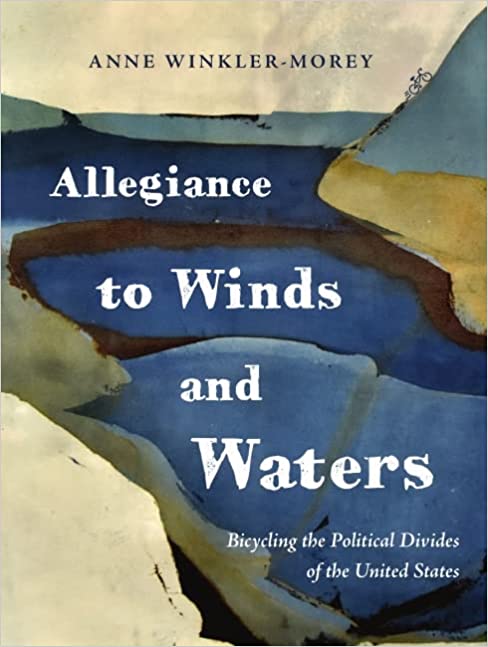
I read To The Lake: A Journey of War and Peace by Kapka Kassabova, about her roots trip circling two ancient lakes that border Albania, North Macedonia, and Greece. Kassabova rejects the nationalisms that poison the region while celebrating the magnetism of a Lake that draws her to her ancestors. Lake Ohrid is the oldest lake in Europe, it has species of fish and plants found nowhere else, I decided we should go to the lake. I picked a town that seemed like the easiest bus route from our home this month: Tirana, Albania.
Scruja, just over the border in North Macedonia, is the most northern point of the lake. To get there we first needed to get to the international bus station called the TEG, six miles out of the city center. We decided to walk, thinking it would be the perfect distance to tire us out for the bus ride. Our path took us across Skanderbau Square, down Embassy Row, up a mountain 450 feet far enough to look down on the pollution line. The first five miles were typical Tirana with changing sidewalks, and every kind of thing blocking the pedestrian way. The last mile all semblance of sidewalk and shoulder disappeared. No place for a pedestrian.
The TEG, it turned out, was a shiny US-style mall atop the mountain. US brands in US stores, and every sign in neon English. We walked through it dazed, culture-shocked, looking for the bus terminal. A very kind parking lot attendant left his post to walk us around the corner to show us how to get to the Bus Station. A tenth of a mile from the Mall, and back to Albania.
The bus was a van that seats twenty. I was disappointed, hoping for a sturdy big bus for those infamous roads I have heard so much about, but when we were on the mountain roads I couldn’t imagine how we’d fit with a full-size bus. Rural Albania was turning green in mid-February, with vertiginous terraced fields—an imprint of step agriculture from the Enver Hoxha era, abandoned collective buildings, occasional hulls of factories, new construction, the remnants of train tracks and trestles leading to mountain tunnels that are no longer used. There were working farms both in flatlands and on mountainsides, just beginning to plow; fruit orchards, grape vineyards.

Train trestle no longer in use
Ten miles from our destination we came to the international border. The bus driver walked through collecting our passports and then handed them to the border guard. It was a weird feeling. For four months we had been holding on to our passports close, then suddenly they were not in our vicinity, passing from hand to hand, including the hands of our fellow bus passengers. On the way back the bus driver dropped a passport and a passenger got out to pick it up on the road.
The bus paused at a park along the lake in Struga, but no one got off so we thought this was not the bus stop. A few minutes later I realized we had left town. Everyone else on the bus was going to Ohrid, seven miles down the road. The bus driver was very kind. After he dropped the other passengers he turned around and took us back to Skruja, refusing a tip for his trouble.
Our first impression of North Macedonia was that it was cleaner and richer than Albania. The next morning, that impression had worn off as we walked undulating sidewalks. There were other differences. The call to prayer was five times a day here. Our lodging, was a room over a garage in a small building with a garden, on Marx i Engels Street. Red stars had not been removed from antifascist statues.

Our hosts, a young couple, picked us up at the bus stop. Hearing about our mishap on the bus the woman said, “Americans tend to be afraid because this is the Balkans. Remember how chaotic your own country is.”
We assured her we were not afraid, just confused. And as for the chaos in the United States? We remembered.
Struga had its busy streets, but it also had long, car-free pedestrian ways, mostly along the water. Our goal was to spend 36 hours as close to nature and as far from cars as possible. We found supper at a place along the river path that did not have smoking indoors. I ordered the famous trout, a species that lives nowhere else.
Bread and soup. Dave’s dinner. No trout. Finally, when Dave’s dinner was all gone the waiter appeared with a creamy torte the size of a large trout. Later I read that the trout is now endangered from overfishing and I was glad my fish never came.
The next morning we found a restaurant open with chairs on the water, in the sun, protected a bit from the wind. It felt to me that we sat for the entire day, though my phone told me we walked nine miles. We ate a late breakfast at this seat on the lake and returned to the same table for a late lunch. David read To The Lake. I read Mark Mazower’s The Balkans. It was cool enough that other customers were inside supplementing their coffee or dinner with an endless stream of cigarettes. We shared the veranda and our bread basket with chickadees, cormorants, seagulls, and swans. It was the most relaxed I have been in…. forever.

During one call to prayer, we were walking the river walk. We stopped to listen. A group of German Shepherds who seem to belong to the community and to each other, tagged and left to lounge in the park and on the bridges, joined the song. A flock of birds on the river of various species stopped diving and swimming or letting the current take them. They lined up facing south toward the Lake in formation until the call was over.

God or no god, it seems many creatures great and small thrive on music and ritual.
The lake was surrounded by mountains. There were signs on this coast prohibiting motors. We watched three teenagers skipping rocks, elders gathering to watch the sunset, and people of all kinds walking the river walk and the lake and pausing to exhale on the bridge between the two.
The lake feeds the river, rushing in under the bridge. It is truly a strange sight, defying our understanding of rivers. After all, no one says from the sea to the river… right? We assume the river feeds the sea—or the lake. And here, with snow-covered mountains, one would think the river snow would drip into the river and flow to the lake. But this lake has springs that keep the water clear, cold, and flowing outward with a force.

The lake feeds the river.
The next morning our path to the bus stop was aided by bakers, gas station attendants, and the bus driver from the day before, who greeted us like old friends. As we topped the mountain and got our last view of the lake from the bus/van—this time from the Albanian side—I thought:
From the Lake to the River,
From every Lake to every River to every Sea,
May all beings be free.


